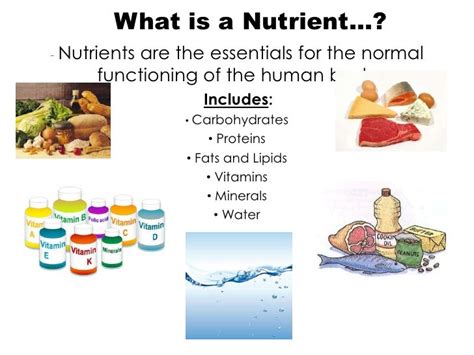What diet & exercise best supports male hormone balance for peak performance?

Understanding Male Hormone Balance for Optimal Performance
For men aiming for peak physical and mental performance, maintaining a balanced hormonal profile is absolutely critical. Hormones act as chemical messengers, influencing everything from energy levels, muscle growth, and metabolism to mood, libido, and cognitive function. Among these, testosterone often takes center stage, but other hormones like cortisol, insulin, and estrogen also play significant roles. An imbalance in any of these can lead to decreased performance, fatigue, reduced muscle mass, increased body fat, and even mental fogginess.
Optimizing hormone levels isn’t about quick fixes but a sustainable, integrated approach that encompasses diet, exercise, and lifestyle choices. This article will delve into the specific strategies that can help men achieve and maintain hormonal equilibrium, setting the foundation for peak performance in all aspects of life.

Dietary Foundations for Hormonal Health
What you eat directly impacts your endocrine system. A diet rich in nutrient-dense whole foods is paramount for supporting hormone production and regulation. Focus on a balanced intake of macronutrients:
- Healthy Fats: Crucial for hormone synthesis, especially testosterone. Include sources like avocados, nuts, seeds, olive oil, and fatty fish (salmon, mackerel) rich in omega-3s.
- Lean Protein: Essential for muscle repair, growth, and neurotransmitter function, which indirectly supports hormonal balance. Opt for lean meats, poultry, eggs, and legumes.
- Complex Carbohydrates: Provide sustained energy and help regulate blood sugar, preventing insulin spikes that can negatively impact other hormones. Choose whole grains, fruits, and vegetables.
Furthermore, specific micronutrients are vital. Zinc, found in oysters, beef, and pumpkin seeds, is critical for testosterone production. Vitamin D, obtained from sunlight exposure and fatty fish, acts as a pro-hormone and is linked to testosterone levels. Magnesium, abundant in leafy greens and nuts, supports sleep and reduces stress, both of which are hormone-modulating.
Conversely, limiting processed foods, excessive sugar, trans fats, and high amounts of alcohol is crucial. These can lead to inflammation, insulin resistance, and estrogen dominance, all detrimental to male hormone balance.

Exercise Regimens for Hormone Optimization
Strategic exercise is a powerful tool for enhancing hormone production and sensitivity. Not all exercise is created equal when it comes to hormonal benefits:
- Strength Training: Lifting weights, especially compound movements (squats, deadlifts, bench presses), is highly effective at stimulating testosterone and growth hormone release. Aim for 3-4 sessions per week with adequate recovery.
- High-Intensity Interval Training (HIIT): Short bursts of intense exercise followed by brief recovery periods can significantly boost growth hormone and testosterone while improving insulin sensitivity.
- Moderate Cardio: While essential for cardiovascular health, excessive long-duration endurance training can sometimes elevate cortisol (stress hormone) and potentially decrease testosterone. Balance is key; incorporate moderate cardio without overdoing it.
Overtraining is a common pitfall that can lead to increased cortisol and suppressed testosterone. Listen to your body, prioritize recovery, and incorporate rest days to allow your hormones to recalibrate and muscles to rebuild stronger.

Crucial Lifestyle Factors
Beyond diet and exercise, several lifestyle elements significantly influence male hormone balance:
- Sleep: Quality sleep (7-9 hours per night) is non-negotiable for hormone production and regulation. Poor sleep elevates cortisol and suppresses testosterone. Prioritize a consistent sleep schedule and optimize your sleep environment.
- Stress Management: Chronic stress leads to sustained high cortisol levels, which can disrupt the entire endocrine system, potentially lowering testosterone. Incorporate stress-reducing practices like meditation, deep breathing, yoga, or spending time in nature.
- Environmental Toxins: Exposure to xenoestrogens (estrogen-mimicking chemicals found in plastics, pesticides, and personal care products) can disrupt hormone balance. Opt for natural products and reduce plastic use where possible.
While supplements can play a supportive role, they should never replace a foundational diet and exercise plan. Consult with a healthcare professional before adding any supplements, as personalized guidance is always best.

Holistic Approach to Sustained Performance
Achieving and maintaining optimal male hormone balance for peak performance is a marathon, not a sprint. It requires a committed, holistic approach that integrates strategic nutritional choices, a well-rounded exercise regimen, and mindful lifestyle habits. By consistently prioritizing nutrient-dense foods, engaging in hormone-boosting workouts, ensuring adequate sleep, and effectively managing stress, men can unlock their full potential, experiencing enhanced energy, strength, mental clarity, and overall vitality.
Remember that individual responses can vary, and consulting with a healthcare provider or an endocrinologist can provide personalized insights and address any underlying conditions. Embrace these principles to build a strong hormonal foundation for a life of peak performance and well-being.










